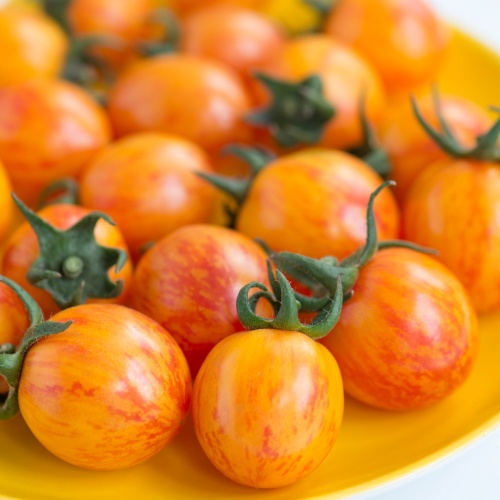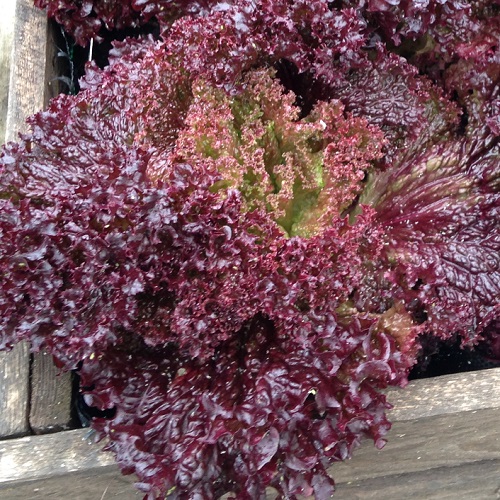Customer Reviews
Write a Review and share your opinions!
19 October 2016
With only two plants grown in the open we have enjoyed over 100 tomatoes per plant and they are still producing. The trusses can be nearly 2 feet long heavy with fruit so cordon them well. In addition they did not succumb to blight. The tomato that just keeps giving.
20 August 2015
Very heavy cropper,novel shape,ok for mixed salad but sungold far superior for my taste.
Customers who bought this item also bought:
Tomato Golden Bumble Bee
£1.79
Produces striking Golden yellow fruits with.....
Growth Habit - Cordon.
Average Packet Contents : 10 seeds
Lettuce Lollo Rossa£0.99
£0.29
Lollo Rossa is an open leafed, non-hearting type with red tinged.....
Av. Packet Contents : 500 seeds


